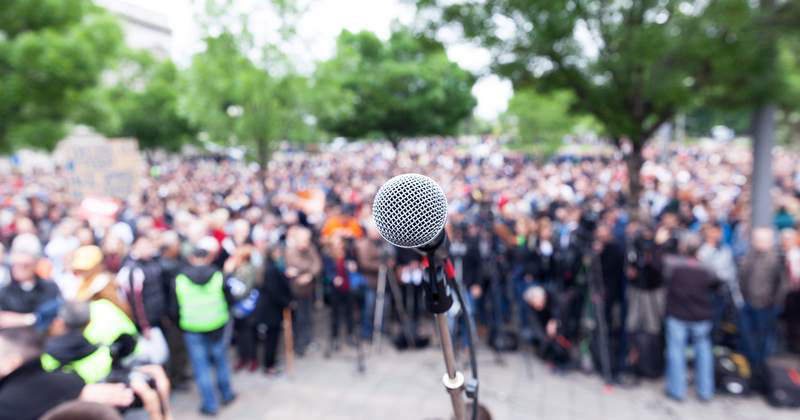When it comes to protesting, what rights do we have?
The First Amendment and state constitutions protect the rights of protestors in public spaces. That being said, certain restrictions may exist. Here are a few things to keep in mind.
What Protesters Can and Cannot Do
Generally speaking, protestors can speak, march and gather in ordinary ways on public sidewalks and streets. They can also distribute flyers, chant, sing and picket. A protestor can take photos and videos.
Protesters should review the literature they distribute. Flyers should not be obscene, defamatory or likely to incite immediate violence.
Getting a Permit
A rally organizer should apply for a permit at least a few days before the protest. If the city denies the permit, it must explain why. The city may charge for the costs of a demonstration, including traffic control and processing permits. An organizer may be able to challenge a burdensome fee.
When a Protest Escalates
Protestors are required to follow the lawful instructions of a police officer or public official. These may include staying behind barricades, dispersing from areas declared an unlawful assembly and not resisting arrest.
How to Handle Arrest
A protestor should remember the name, badge number and patrol car number of the officer who arrested them. The protestor may file a formal complaint.
Finally, under the current conditions, try to keep safe social distancing practices in mind and keep up with the latest state guidelines regarding group gatherings.
Do you have any questions or need help with any legal issues? Reach out today.

